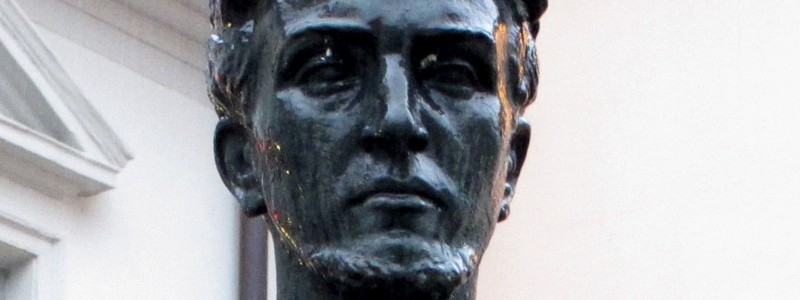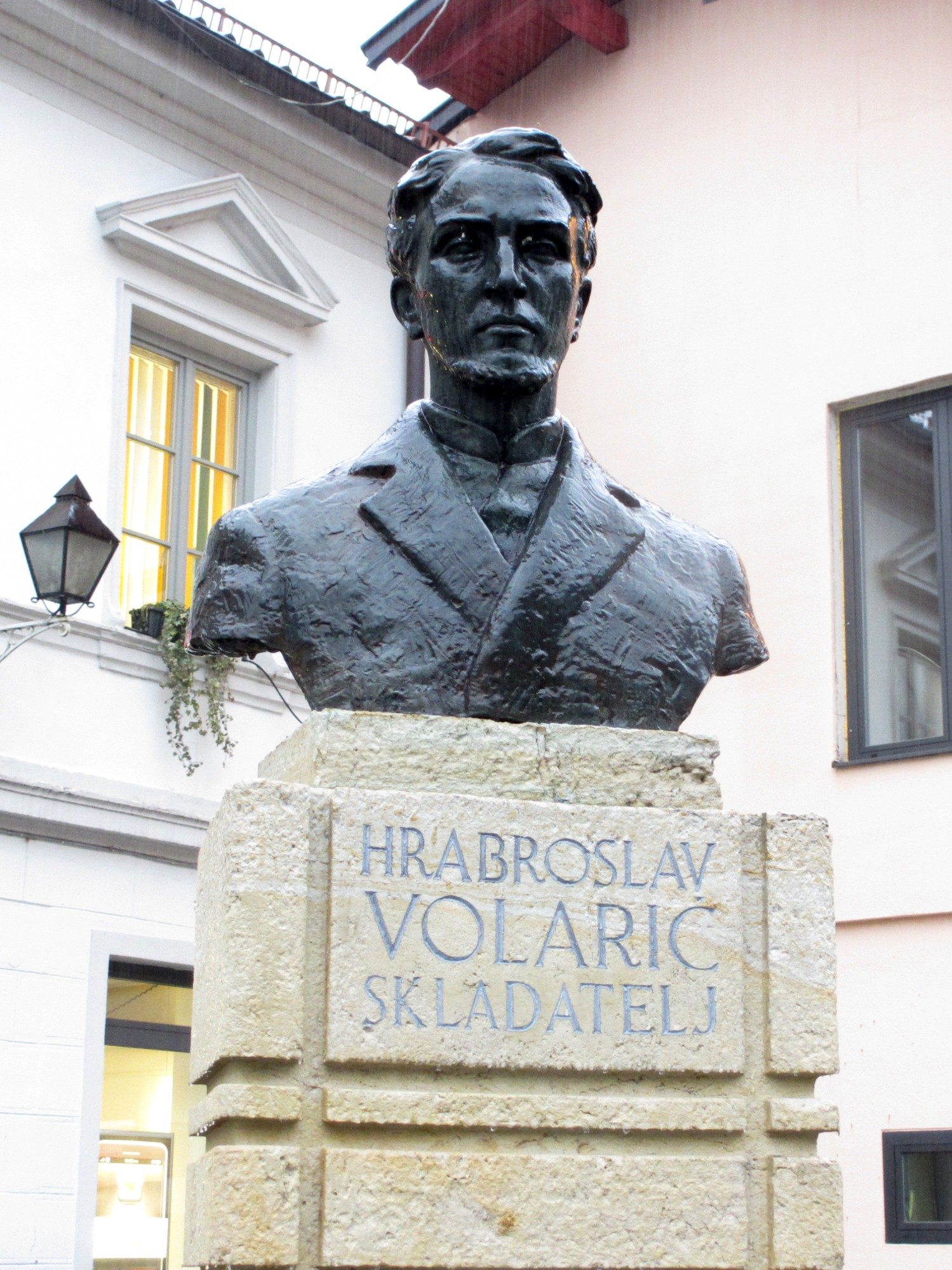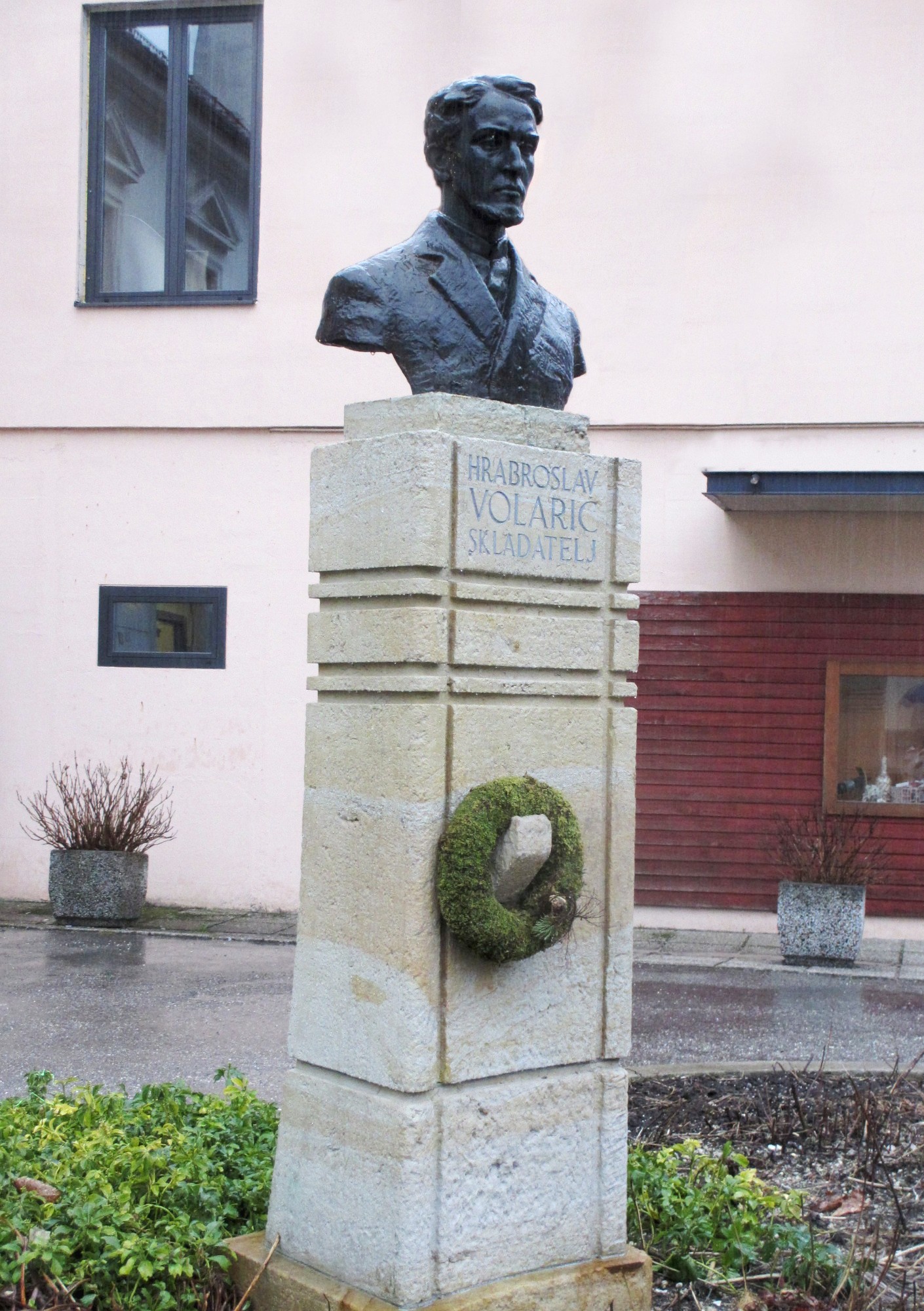A bronze bust of Hrabroslav Volarič stands in the composer’s native town, Kobarid. The memorial was erected in 1952 by the Committee for the Establishment of the Tolmin Museum, and the speech at the unveiling was delivered by Slovenian writer France Bevk. The statue was made by Boris Kalin. A life-size stone sculpture had already been erected on this site, but was destroyed by fascists in 1922.
Hrabroslav Volarič
Composer and choirmaster of the Slovenian Primorska (Littoral), Hrabroslav Volarič (1863–1895) pursued his passion for music in the vocal genre. He adapted folk songs and scored his own works for the numerous choirs he founded and conducted. A self-published composer, his choral pieces reflect romantic emotional nuances and a pronounced folk-song flavour.
The love of music was instilled in Volarič by his father, a shoemaker and also a folk musician. When he was a pupil at primary schools in Kobarid and Trieste, his favourite subject was music. Completing his elementary education, Volarič enrolled at a preparatory school for the Teachers’ Training College in Kobarid, taking lessons in music theory and piano with composer Srečko Carli. At the age of fifteen, he continued to study music at the Teachers’ Training College in Koper, with the celebrated violinist and organist Josef Czastka, who tutored him in piano, harmony and counterpoint, thus furnishing the aspiring musician with the knowledge he needed for his first composing feat. At the Teachers’ Training College Volarič conducted the school choir and scored a mass in Latin.
While teaching in Tolmin, Volarič drew inspiration for his composing technique from a master of the art of counterpoint, Danilo Fajgelj, who encouraged him to present his compositions to a wider public. Seeking to broaden his musical skills at the Conservatory of Music in Trieste, the composer was frustrated in his ambition by illness (typhus and pneumonia) and, ultimately, by premature death.
Volarič’s music displays a characteristic use of secular motifs and elaboration of folk melodies. Forming the bulk of his oeuvre, it is particularly his choral pieces that show the marked influence of vernacular melodic lines. Apart from choral works, he predominantly composed lieder with piano accompaniment, notable examples being Oj rožmarin, Pogled v nedolžno oko, Biseri and Ledene rože (Oh, Rosemary, Gazing at Those Innocent Eyes, Pearls, and Frost Flowers), and piano polkas-mazurkas. Although his rudimentary composing proficiency allowed for scoring mainly simpler musical forms, Volarič also produced a more extensive piece, the operetta Od železne ceste (Via the Railway).
Overall, Volarič’s musical idiom embodies an overriding esprit of the national awakening, the efforts to affirm national identity arising from the social and political conditions of the late 19th century. The aesthetic concepts of the period are reflected in the simple musical expressiveness of his lieder, structured partly in strophic settings and partly through-composed, with an emphasis on a flowing melody with an undemanding piano accompaniment. Although recognising the impeccable technical accomplishment of his church music, the Caecilians nevertheless expressed disapproval of its “overly secular note”.
In late the 19th and early 20th centuries, Volarič’s songs formed a popular part of the standard vocal repertoire, and have retained some of their appeal for the contemporary public.
Maia Juvanc


